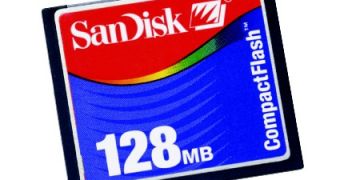As the flash memory chips are very popular these days, hardware manufacturers seek new ways to increase their data transferring performance and capacity. The problem is that while traditional NAND based flash memory chips are pretty good in terms of both performance and storage capacity, current manufacturing technologies can't push them much further.
While a number of possible alternative technologies already exist, few hardware manufacturers are actively seeking new ways of increasing storage capacity and data transferring performance for the flash memories. Among those manufacturers there are Intel and STMicroelectronics which formed a joint venture to make memory and according to the news site News.com, they may soon announce the launch of phase-change memory chips.
Greg Komoto, manager for strategic planning for Intel's flash memory group, said that no other memory technology has the potential for such low production costs while preserving the storage capacity and performance needed. According to him, Intel already has some 90-nanometer phase-change memory chips and that tests results are promising until now. The Intel and STMicroelectronics' joint venture for memory production is called Numonyx and the newly formed company said that details about the new flash memory will be available later this year.
Phase-change memory chips are made from materials that are very similar to the ones used to make CD discs and the technology to make them is available today. Phase-change memory chips work because during the fabrication process microscopic bits on the chip are rapidly heated to around 600 degrees Celsius which changes their internal structure for crystalline to amorphous. It may sound simple but since Gordon Moore wrote an article about it during the 1970s and still there are no such chips on the market, the fabrication process needs to be tinkered with. Besides Intel and ST, a lot of interest in this particular technology was shown by companies like Samsung and Philips too.

 14 DAY TRIAL //
14 DAY TRIAL //